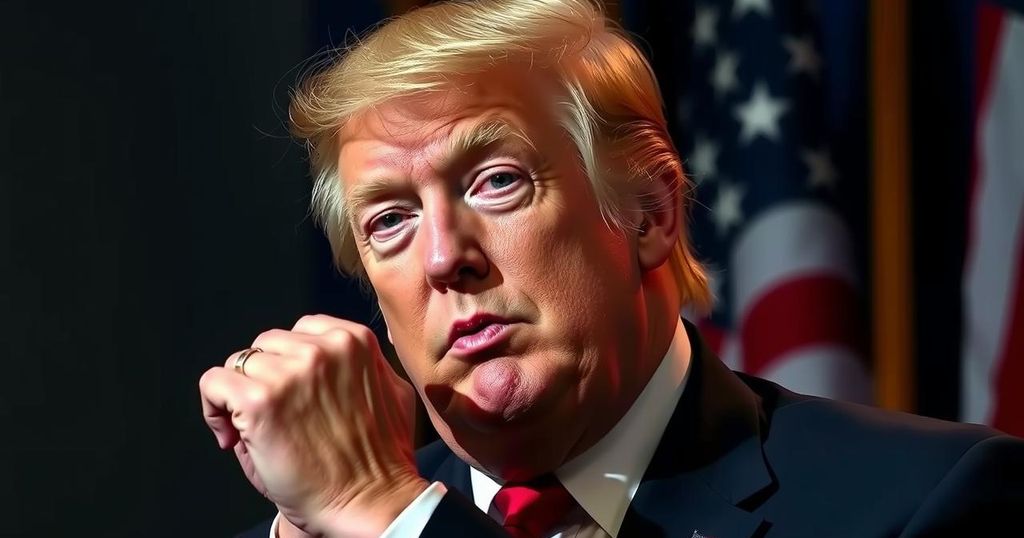Former President Donald Trump is experiencing heightened anxiety in the days leading up to Election Day, prompting him to engage more actively with aides about his chances of winning. Disappointing early voting turnout among men has raised concerns within his party as they strategize to mobilize key demographics. Trump’s campaign has focused on creating captivating rallies and emphasizing issues related to voter integrity while implementing a robust outreach ahead of the election.
In the lead-up to the upcoming election, former President Donald Trump is exhibiting signs of anxiety despite his campaign’s outward assertions of confidence. His heightened unease is evident through frequent late-night communications with aides, during which he seeks updates and expresses concerns regarding his electoral prospects. This agitation is echoed within his party, as certain conservatives have raised alarms over disappointing early voting turnout among male constituents—a demographic anticipated to support Trump significantly. … The campaign has invested heavily in creating memorable rally settings and coordinating a strategic push on election integrity, amidst an atmosphere of rising tensions and uncertain voter sentiment. Trump has indicated that, should he lose the election, he may assign blame to Republican National Committee chair Michael Whatley, underscoring undercurrents of accountability anticipated in a highly contested environment.
The political landscape surrounding the upcoming election is characterized by a closely contested environment, prompting high levels of anxiety among candidates and their respective campaigns. With polling data suggesting an even distribution of voter support, campaign teams are on high alert, particularly as early voting trends reveal crucial insights into voter behavior, especially in gender-divided contests. Trump’s strategies have been shaped by his personal interests and perceptions, spotlighting issues such as voter fraud and election integrity—a reflection of his consistent messaging throughout previous campaigns. Moreover, the importance of swing states is pronounced as candidates work diligently to secure electoral votes in critical regions.
In summary, as Election Day approaches, Donald Trump’s campaign is grappling with a mix of confidence and anxiety, propelled by concerns over male voter turnout and strategic choices to ensure a successful electoral outcome. His recent actions reflect a determination to engage voters and mitigate perceived risks of electoral failure, while the broader Republican landscape shares similar apprehensions about the voting climate. Ultimately, the dynamics at play in the final days leading up to the election will significantly influence the political narrative and subsequent results.
Original Source: www.axios.com







